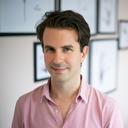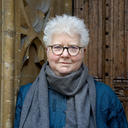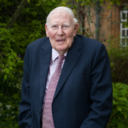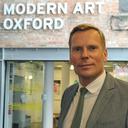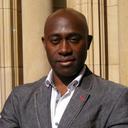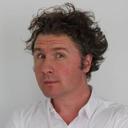ALUMNI STORIES: 'DESIGN YOUR LIFE IN THE WAY THAT YOU WANT TO'
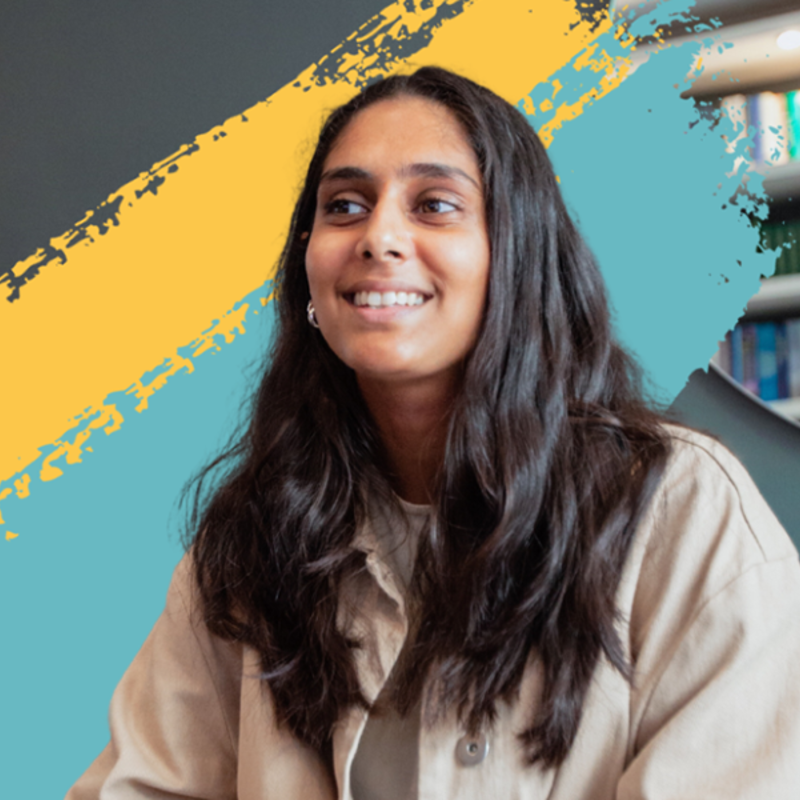
Photo credit: Hatch Enterprise
ALUMNI STORIES: 'DESIGN YOUR LIFE IN THE WAY THAT YOU WANT TO'
Zainab Mahmood (St Anne’s, 2014) shares her journey from studying Arabic and Farsi to founding a sustainable fashion community for South Asians in the UK.
Published: 30 January 2024
Author: Tiya Muluzi
https://www.youtube.com/embed/9Pv5YAgyJkM?si=EM_ig_CFWJ78_UU_"
Read an extract of the interview below.
Tell us about your journey from a degree in Arabic with Farsi to becoming an expert in slow fashion?
I became interested in slow fashion when I was in my third year. That was going on in the background of my studies. I was the president of Oxford Women International Society. I channelled some of my interest in fashion into organising events for the society.
After I graduated, I wanted to move to Madrid. I had spent some summers there during my undergrad, trying to practice Spanish and experience the city. I really liked it, so I got a part-time English teaching assistant job and moved to Madrid for a year. That gave me the breathing space from my degree and in general, gave me time and space to explore my interests further.
When I moved back, I started applying for jobs. I looked into both ethical and sustainable fashion, as well as jobs in charities. I did some interning and volunteering around fashion. I was learning so much from other journalists and online creators. I felt like I wanted to get my voice out there as well.
A few months after moving back to the UK, while I was still aggressively job searching, interning, and volunteering, I decided to start pitching as a freelance writer to publications. I had my first piece published in Gal-Dem about sustainable fashion. I continued developing and pitching my ideas alongside sharing them on social media.
I started my Instagram account around the same time that I pitched to Gal-Dem. I had all of that going on in the background. Meanwhile, I got a part-time job in publishing and then moved on to a full-time job in a charity. I worked on that stuff a lot during the pandemic. Partly because I had the time, I wasn't commuting or socialising as much. I could really put a lot of energy into that.
It's grown in terms of my social media following. Also, the different types of opportunities that have come from it. I've done a lot of in-person speaking. I've spoken on TV, on podcasts and the radio about sustainable fashion and climate justice.
Where did you think your degree would take you?
I didn't think it would take me to where I am at the moment. Mostly because I didn't even think that these opportunities were possible. In terms of creating a platform online and then getting other opportunities from that, it's all quite new as well. So, I've been winging a lot of aspects of my career. Speaking to other creators in similar positions who are maybe a bit older than me and have been doing it for longer to guide me through some of the process. Negotiating fees or collaborating back and forth about what the topic of my speech or my panel will be.
I didn’t expect to be here, but I did do some journalism internships while I was doing my undergrad. So, I knew that writing was an avenue that I could pursue. However, since I launched Ahista Stories, I haven't done much writing. It's probably something that I will come back to at some point. But while I've been doing my masters and running Ahista Stories, there hasn't been a whole lot of room for writing. Particularly because I like to write for print and conduct a lot of interviews and do quite in-depth research for the articles that I write.
How did you find the transition after graduating from Oxford?
That year I spent in Spain was actually a very useful transition period. It allowed me to get away geographically and provided a significant pause. Working part-time, I didn't put a whole lot of pressure on myself to do freelance work or volunteering on top of that. I did a bit of volunteering in Madrid, but it wasn't to the extent of working a full-time job or pursuing a full-time degree, as I did in Oxford.
That period gave me time to think and delve deeper into my interests. This time greatly influenced the types of jobs I started applying for and my decision to pitch myself as a freelance writer. If I hadn't taken that time away in Madrid, I might not have developed my interests to the extent that I did. This period defined the next steps I took in terms of the jobs I pursued and my choice to build a platform on social media and work as a freelance writer, rather than as a staff writer for just one publication.
Looking back is there anything you would have done differently in your first year post-graduation?
Sometimes I want to say yes, just because I think I could have put my entrepreneurial and curious mindset maybe to better, more productive use considering the free time that I had, but I think I have that kind of workaholism in me, which I think is why Oxford also suited me really well. I was quite up for just being consumed by my studies.
But I think just like as a person and a human, I needed that break. I really look back on that time fondly and really enjoyed the long trips that I took, just exploring the city around me, speaking Spanish, and making friends. All of that is really valuable and has shaped me as a person.
Advice for our newest alumni?
If you have the privilege to do so, think about designing your life in the way that you want it to be and not necessarily following a traditional path. Sometimes we use the term "conveyor belt," implying that you don't have to stay on it if you don't want to. If you have certain privileges, you can get off and think about working as a freelancer or taking a remote job, then moving abroad, and experiencing life differently.
You don't need to move back to the city you came from or to a bigger city to get a corporate 9-5 job (or even more than 9 to 5, considering many people work far beyond those hours). There are other ways of doing life that can maybe be better for you as a person overall, not just for your career or financial stability.
What was the inspiration behind Ahista Stories?
I'm Pakistani, and I grew up traveling to Pakistan. I was able to go to fabric markets and pick things out that I liked and kind of make silly sketches of clothes that I wanted to have made by our family tailor. His name is Fesal, and he lives in Karachi. He's been making my clothes for like 20 years.
When I started getting interested in sustainable fashion, I started thinking about that way of making clothes and that personal relationship that I had with it. However, I didn't have any of that personal aspect to the way I was shopping fast fashion here in the UK as a teenager.
Because of the platform that I'd built on Instagram and travel kind of opening up last summer, and my parents were traveling to Pakistan, and I had a wedding coming up that I needed a lot of outfits for (it was like five events over three days), I started thinking about the clothes that I wanted to make.
My mum took out like a suitcase full of sarees, and we started brainstorming ideas of how we could upcycle them. It was such an enjoyable experience. Aside from that, it was more affordable and more sustainable than buying new clothes. But it was also way more enjoyable than going into a shop and just buying something new.
So, I really wanted to bring that kind of creative and joyous energy to serious conversations about fashion. That's why when I planned our Ahista Stories live, which was London's first-ever South Asian sustainable fashion festival, the first in-person event that we did was on the 7th of October. I really wanted to bring in those fun elements and have these upcycling workshops.
One of the panel discussions really allowed the panellists to delve into their personal relationships with fashion and sustainability. It also included a conversation about garment worker rights and spirituality in sustainable fashion. I wanted to bring those fun elements but also those really important elements about workers’ rights and climate justice under one umbrella.
This was inspired by my personal relationship with fashion as well as the kind of knowledge I've built up about how the fashion industry works. That was also enhanced by the fact that I decided to study development studies, so I started off doing the labor pathway here at SOAS. Last year, I focused a lot on labor but actually switched to the environment program this year. So, I'm focusing a lot more on the environment, but obviously, those both come into fashion really strongly. I was able to bring that expertise as I was curating the panellists and the questions for those panel discussions.
Biggest challenges setting up Ahista Stories and the event which you ran?
It was just a massive undertaking. That was the main challenge. I curated it by myself, and I'm grateful and proud that I was able to pull it off. Bringing so many different people together was a significant achievement. Watching it all unfold in person on that one day after curating it all by myself, just on my laptop in my bedroom at home, was really special.
Going forward, the main challenge is going to be funding and making sure that I can fulfil my life responsibilities alongside doing everything I want to do with Ahista Stories. Without sacrificing all of my time and energy, I need to ensure that I can continue to deliver those events while still managing the rest of my life.
Could you give us insight into your typical workday?
At the moment, I'm studying part-time, so two of my days each week are mainly spent at SOAS attending classes, doing readings, and catching up on emails related to Ahista Stories. On the other days, I focus on funding applications and work on various documents for Ahista Stories, such as my pitch deck, booklets, and decks for sponsors.
Recently, we completed an impact report on Ahista Stories Live 2023, aiming to present our impact to potential partners and funders. So, during the three days of the week when I'm not at SOAS, I work from home on these projects, also weaving in some reading to ensure I stay on track with my studies.
Any tips for alumni wanting to turn their passion for sustainability/fashion into a reality?
Talk to as many people as you can within the fashion industry, but also reach out to individuals you trust, whether it's a parent, a former colleague, or a mentor. Engage in conversations about your skills, experiences, and interests. Discuss how you might tap into the industry, explore jobs you weren't aware of, and find potential opportunities within the sustainable fashion sector. Research extensively and actively participate in dialogues about aligning your skills and interests with the industry or the specific job you aspire to pursue.
What does success look like to you?
Going to sleep at night and being happy with yourself—this happy aspect is, of course, different for a lot of people. But my work is really value-driven, I'm very picky about the people with whom I work and the projects on which I work. I know that I won't be able to sleep at night if I work for certain companies or on certain projects, so that is kind of the driving force.
What’s next for you and Ahista Stories?
For the festival that we did in October is going to be our annual Flagship Festival, so we'll be doing it again in October next year. I've just applied for quite a large amount of funding to run that, and I'll begin reaching out to sponsors and more funders in the new year, beginning that process of planning the festival. Hopefully, with some smaller events throughout the year.
As I go through that process and I'm still studying, I'll be exploring different funding avenues and trying to figure out how viable doing our hist stories live on a paid part-time or full-time basis post-graduation will be. And if I find that, you know, it's not really a viable financial option, then I'm going to look into kind of reviving my career in journalism a bit. Like I was saying before, engaging in dialogue with people who I trust about my skills and experience and thinking about whether there are jobs or career paths that I would be well-suited to and would enjoy that I haven't yet explored.
I mentioned earlier that if you have the privilege to, you should design your life the way that you want. So, I'm really going to be thinking about that a lot over the next 10 months while I'm still studying but also running Ahista Stories.
How has your time at Oxford helped you in your journey?
I think studying languages gave me the opportunity to talk about a lot of my ideas in classes, and they didn't have to be tied to a specific curriculum. I think that's quite unique to studying languages; you give a presentation in a speaking class about something that you care about, and then you talk about it with your classmates. You also get to hear about what these people from all different backgrounds care about and what they're interested in. I think that really shaped my worldview and gave me the opportunity to practice expressing myself and talking about different things.
I was intentional about participating in other things that were going on within the University. So, I tried to go to a lot of extra talks, particularly at the Middle East Centre because it was next to my college; it was very convenient. But also talks and other events like film screenings held by other societies. There was just so much that I could absorb, and that kind of added to that quite global worldview that I developed.
I think the tutorial format as well really forces you to get more comfortable talking. I think all of that has fed into my ability to express my opinions in different ways. Sometimes it's long-form in a 3,000-word article, sometimes it's on social media, but also, it's in interviews like this and speaking engagements and podcasts.
0:17 Tell us about your journey from a degree in Arabic with Farsi to becoming an expert in slow fashion?
0:19 So I became interested in slow fashion when I was in my third year. That was kind of going on in the background of my studies. I was the president of Oxford Women International Society. I channelled some of my interest in fashion into organising events for the society.
After I graduated, I wanted to move to Madrid. I had spent some summers there during my undergrad, trying to practice Spanish and experience the city. I really liked it, so I got a part-time English teaching assistant job and moved to Madrid for a year. That gave me the breathing space from my degree and just, in general, gave me time and space to explore my interests further.
When I moved back, I started applying for jobs. I looked into both ethical and sustainable fashion, as well as jobs in charities. I did some interning and volunteering around fashion. I was learning so much from other journalists and online creators. I felt like I wanted to get my voice out there as well.
A few months after moving back to the UK, while I was still aggressively job searching, interning, and volunteering, I decided to start pitching as a freelance writer to publications. I had my first piece published in Gal-Dem about sustainable fashion. I continued developing and pitching my ideas alongside sharing them on social media.
I started my Instagram account around the same time that I pitched to Gal-Dem. So, I had all of that going on in the background. Meanwhile, I got a part-time job in publishing and then moved on to a full-time job in a charity. I worked on that stuff a lot during the pandemic. Partly because I had the time, I wasn't commuting or socializing as much. I could really put a lot of energy into that.
It's just kind of grown in terms of my social media following. Also, the different types of opportunities that have come from it. I've done a lot of in-person speaking. I've spoken on TV, on podcasts, radio, etc., about sustainable fashion and climate justice.
2:51 Where did you think your degree would take you?
2:53 I didn't think it would take me to where I am at the moment. Mostly because I just didn't even think that these opportunities were possible. In terms of creating a platform online and then getting other opportunities from that, it's all quite new as well. So, I've been kind of winging a lot of aspects of my career. Speaking to other creators in similar positions who are maybe a bit older than me and have been doing it for longer to guide me through some of the process. You know, negotiating fees or collaborating back and forth about what the topic of my speech or my panel will be.
I didn’t expect to be here, but I did do some journalism internships while I was doing my undergrad. So, I knew that writing was an avenue that I could pursue. However, since I launched Ahista Stories, I haven't done much writing. It's probably something that I will come back to at some point. But while I've been doing my masters and running Ahista Stories, there hasn't been a whole lot of room for writing. Particularly because I like to write for print and conduct a lot of interviews and do quite in-depth research for the articles that I write.
4:22 How did you find the transition after graduating from Oxford?
4:24 That year I spent in Spain was actually a very useful transition period. It allowed me to get away geographically and provided a significant pause. Working part-time, I didn't put a whole lot of pressure on myself to do freelance work or volunteering on top of that. I did a bit of volunteering in Madrid, but it wasn't to the extent of working a full-time job or pursuing a full-time degree, as I did in Oxford.
As mentioned earlier, that period gave me time to think and delve deeper into my interests. This time greatly influenced the types of jobs I started applying for and my decision to pitch myself as a freelance writer. If I hadn't taken that time away in Madrid, I might not have developed my interests to the extent that I did. This period defined the next steps I took in terms of the jobs I pursued and my choice to build a platform on social media and work as a freelance writer, rather than as a staff writer for just one publication.
5:50 Looking back is there anything you would have done differently in your first year post-graduation?
5:53 Sometimes I want to say yes just because I think I could have kind of put my entrepreneurial and curious mindset maybe to better, more productive use considering the free time that I had. But I think I have that kind of workaholism in me, which I think is why Oxford also suited me really well. I was quite up for just being consumed by my studies.
But I think just like as a person and a human, I needed that break. I really look back on that time fondly and really enjoyed the long trips that I took, just exploring the city around me, speaking Spanish, and making friends. All of that is really valuable and has shaped me as a person.
6:44 Advice for our newest alumni?
6:46 If you have the privilege to do so, think about designing your life in the way that you want it to be and not necessarily following a traditional path. Sometimes we use the term "conveyor belt," implying that you don't have to stay on it if you don't want to. If you have certain privileges, you can get off and think about working as a freelancer or taking a remote job, then moving abroad, and experiencing life differently.
You don't need to move back to the city you came from or to a bigger city to get a corporate 9-5 job (or even more than 9 to 5, considering many people work far beyond those hours). There are other ways of doing life that can maybe be better for you as a person overall, not just for your career or financial stability.
7:47 What was the inspiration behind Ahista Stories?
7:50 I'm Pakistani, and I grew up traveling to Pakistan. I was able to go to fabric markets and pick things out that I liked and kind of make silly sketches of clothes that I wanted to have made by our family tailor. His name is Fesal, and he lives in Karachi. He's been making my clothes for like 20 years.
When I started getting interested in sustainable fashion, I started thinking about that way of making clothes and that personal relationship that I had with it. However, I didn't have any of that personal aspect to the way I was shopping fast fashion here in the UK as a teenager.
Because of the platform that I'd built on Instagram and travel kind of opening up last summer, and my parents were traveling to Pakistan, and I had a wedding coming up that I needed a lot of outfits for (it was like five events over three days), I started thinking about the clothes that I wanted to make.
My mum took out like a suitcase full of sarees, and we started brainstorming ideas of how we could upcycle them. It was such an enjoyable experience. Aside from that, it was more affordable and more sustainable than buying new clothes. But it was also way more enjoyable than going into a shop and just buying something new.
So, I really wanted to bring that kind of creative and joyous energy to serious conversations about fashion. That's why when I planned our Ahista Stories live, which was London's first-ever South Asian sustainable fashion festival, the first in-person event that we did was on the 7th of October. I really wanted to bring in those fun elements and have these upcycling workshops.
One of the panel discussions really allowed the panellists to delve into their personal relationships with fashion and sustainability. It also included a conversation about garment worker rights and spirituality in sustainable fashion. I wanted to bring those fun elements but also those really important elements about workers’ rights and climate justice under one umbrella.
This was inspired by my personal relationship with fashion as well as the kind of knowledge I've built up about how the fashion industry works. That was also enhanced by the fact that I decided to study development studies, so I started off doing the labor pathway here at SOAS. Last year, I focused a lot on labor but actually switched to the environment program this year. So, I'm focusing a lot more on the environment, but obviously, those both come into fashion really strongly. I was able to bring that expertise as I was curating the panellists and the questions for those panel discussions.
10:49 Biggest challenges setting up Ahista Stories and the event which you ran?
10:51 It was just a massive undertaking. That was the main challenge. I curated it by myself, and I'm grateful and proud that I was able to pull it off. Bringing so many different people together was a significant achievement. Watching it all unfold in person on that one day after curating it all by myself, just on my laptop in my bedroom at home, was really special.
Going forward, the main challenge is going to be funding and making sure that I can fulfil my life responsibilities alongside doing everything I want to do with Ahista Stories. Without sacrificing all of my time and energy, I need to ensure that I can continue to deliver those events while still managing the rest of my life.
11:51 Could you give us insight into your typical workday?
11:54 At the moment, I'm studying part-time, so two of my days each week are mainly spent at SOAS attending classes, doing readings, and catching up on emails related to Ahista Stories. On the other days, I focus on funding applications and work on various documents for Ahista Stories, such as my pitch deck, booklets, and decks for sponsors.
Recently, we completed an impact report on Ahista Stories Live 2023, aiming to present our impact to potential partners and funders. So, during the three days of the week when I'm not at SOAS, I work from home on these projects, also weaving in some reading to ensure I stay on track with my studies.
12:49 Any tips for alumni wanting to turn their passion for sustainability/fashion into a reality?
12:51 Talk to as many people as you can within the fashion industry, but also reach out to individuals you trust, whether it's a parent, a former colleague, or a mentor. Engage in conversations about your skills, experiences, and interests. Discuss how you might tap into the industry, explore jobs you weren't aware of, and find potential opportunities within the sustainable fashion sector. Research extensively and actively participate in dialogues about aligning your skills and interests with the industry or the specific job you aspire to pursue.
13:37 What does success look like to you?
13:49 Going to sleep at night and being happy with yourself—this happy aspect is, of course, different for a lot of people. But my work is really value-driven, I'm very picky about the people with whom I work and the projects on which I work. I know that I won't be able to sleep at night if I work for certain companies or on certain projects, so that is kind of the driving force.
14:24 What’s next for you and Ahista Stories?
14:26 For the festival that we did in October is going to be our annual Flagship Festival, so we'll be doing it again in October next year. I've just applied for quite a large amount of funding to run that, and I'll begin reaching out to sponsors and more funders in the new year, beginning that process of planning the festival. Hopefully, with some smaller events throughout the year.
As I go through that process and I'm still studying, I'll be exploring different funding avenues and trying to figure out how viable doing our hist stories live on a paid part-time or full-time basis post-graduation will be. And if I find that, you know, it's not really a viable financial option, then I'm going to look into kind of reviving my career in journalism a bit. Like I was saying before, engaging in dialogue with people who I trust about my skills and experience and thinking about whether there are jobs or career paths that I would be well-suited to and would enjoy that I haven't yet explored.
I mentioned earlier that if you have the privilege to, you should design your life the way that you want. So, I'm really going to be thinking about that a lot over the next 10 months while I'm still studying but also running Ahista Stories.
16:03 How has your time at Oxford helped you in your journey?
16:06 I think studying languages gave me the opportunity to talk about a lot of my ideas in classes, and they didn't have to be tied to a specific curriculum. I think that's quite unique to studying languages; you give a presentation in a speaking class about something that you care about, and then you talk about it with your classmates. You also get to hear about what these people from all different backgrounds care about and what they're interested in. I think that really shaped my worldview and gave me the opportunity to practice expressing myself and talking about different things.
I was intentional about participating in other things that were going on within the University. So, I tried to go to a lot of extra talks, particularly at the Middle East Centre because it was next to my college; it was very convenient. But also talks and other events like film screenings held by other societies. There was just so much that I could absorb, and that kind of added to that quite global worldview that I developed.
I think the tutorial format as well really forces you to get more comfortable talking. I think all of that has fed into my ability to express my opinions in different ways. Sometimes it's long-form in a 3,000-word article, sometimes it's on social media, but also, it's in interviews like this and speaking engagements and podcasts.



